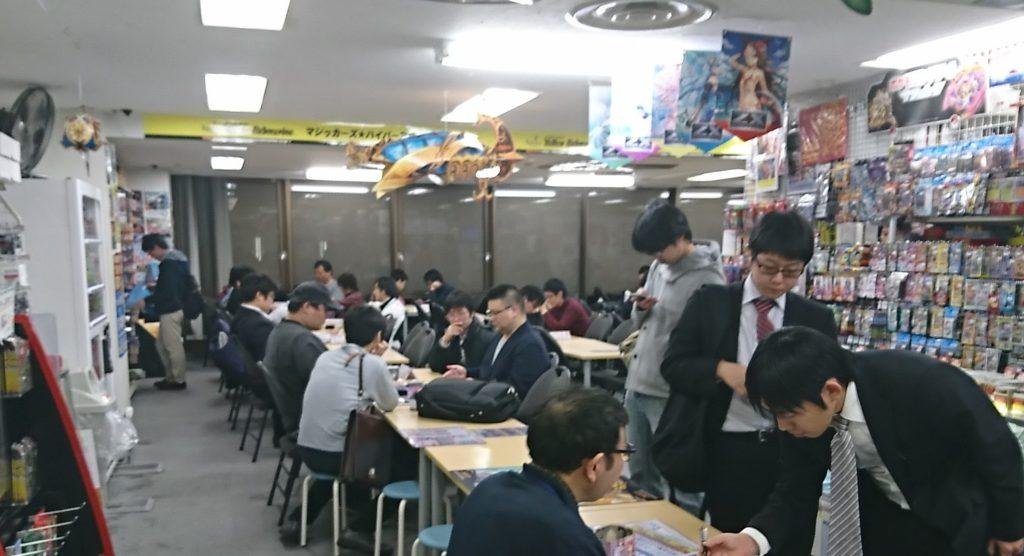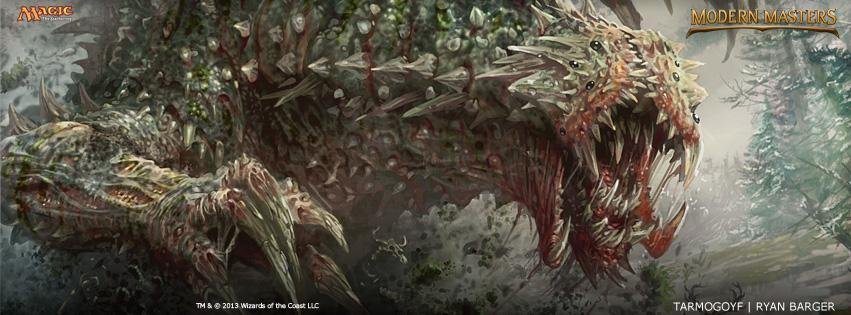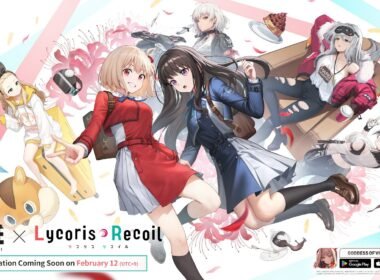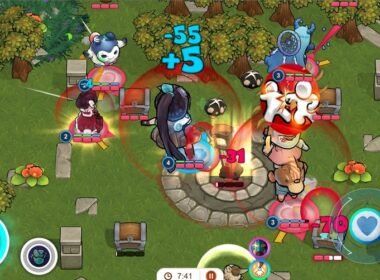I am an avid card game fan, and more often than not, I spend most of my free time playing card games; my favourite at this time being Magic the Gathering. Thus, it is to nobody’s surprise that after I moved to Tokyo for my studies slightly more than a month ago, the first thing I did was to search and explore local game stores for my next playing field.
My initial thoughts were that playing Magic in Japan would be very difficult since most Japanese speak little to no English and even the cards here are printed in Japanese. To my surprise, that was not the case. Despite the language barrier, Japanese players prefer to play with English printed cards, and some even mix both English and Japanese printed cards in their decks. This has made my life a lot easier and my experience rather fun.
To date, I have played a few events in Japan and I felt that despite not understanding much Japanese, playing Magic is quite the pleasant experience. Simple English terms such as un-tap, upkeep, draw and et cetera are easily understood in Japan. Therefore, if a player comes from other countries that play Magic in English, with a little help from sign and body language, it will not be a problem playing here in Japan.
I still clearly recall the first event I played in Japan, during Friday Night Magic (FNM), when I went to a store called Yellow Submarine in Akihabara. The registration cost was 300 Yen (approximately RM 12) which is standard even in Malaysia. What differs though (and to me is astounding) is that the shop offers three (3) different formats for its FNM, namely Modern, Legacy and Standard. I was even more surprised that there are more than 8 players for Legacy and Modern because it is not the normal format to be played for FNM and there are only a handful of players for this format back home in Malaysia.

To me the playing experience is different compared to playing back home. For instance, at the store where I played, the shopkeeper will write down the player’s name on a scoresheet and he/she will place it on the play table with your opponent while you are playing. Once you are done with your game, you are then required to write your name and your score on your opponent’s scoresheet and your opponent will write his on yours which is similar to the Rules Enforcement Level of a Grand Prix. The next thing that I noticed which is different, is that during the pre-game or post-board, the first thing that Japanese players do is count their sideboard cards in front of you to show that they are not cheating. This habit of theirs is to incite fairness and transparency between players.
I also noticed that the Japanese players that I played against were generally more polite compared to the players in Malaysia. Here, when you lose your game against your opponent, don’t be surprised when your Japanese opponent suddenly apologizes to you repeatedly. This is a normal custom and habit in Japan and does not apply only to playing trading card games but to their daily lives as well.
Despite having a language barrier, I was able to enjoy the games I have played as the players I faced were patient and friendly. They were willing to try to explain to me the card effects in English despite them having difficulty explaining it in English. In situations where they couldn’t explain, I would use my mobile phone to search for the card effects and they were willing to wait patiently for me to read the card effects before continuing the game.

Unlike in Malaysia, the availability of cards is not a problem here in Japan unless it is from the newer sets. If you are a Modern or EDH player, Japan is the place for you to find cards. In Akihabara itself, there are many card shops which carry the game and almost every shop has an impressive collection of cards from every format. Back home in Malaysia, it is quite difficult to find Modern staple cards that are often used. For example, Tarmogoyf, a staple card for green can only be found by the handful in Malaysia, but almost every card shop in Japan has at least two (2) playsets of Tarmogoyf for sale. Still, the question will always remain the same be it here in Malaysia or in Japan, “Do you have enough money?”
Well, that sums up the experience I had playing Magic in Japan so far. I intend to play more and explore the shops here even more. Playing Magic here wasn’t as hard as I initially thought, and in fact, I truly enjoyed the whole experience since the culture and customs in Japan are absolutely different from Malaysia. However, I still miss the drinking or “yum cha” sessions after games back home in Malaysia. In Japan, the Japanese players usually hangout among themselves in the shop and just go home after. In that sense, I still do feel like a stranger here but time will tell whether I can blend in as a Japanese or otherwise.
For now, I am going to keep on slinging my “Majikku”, さようなら and またね。












